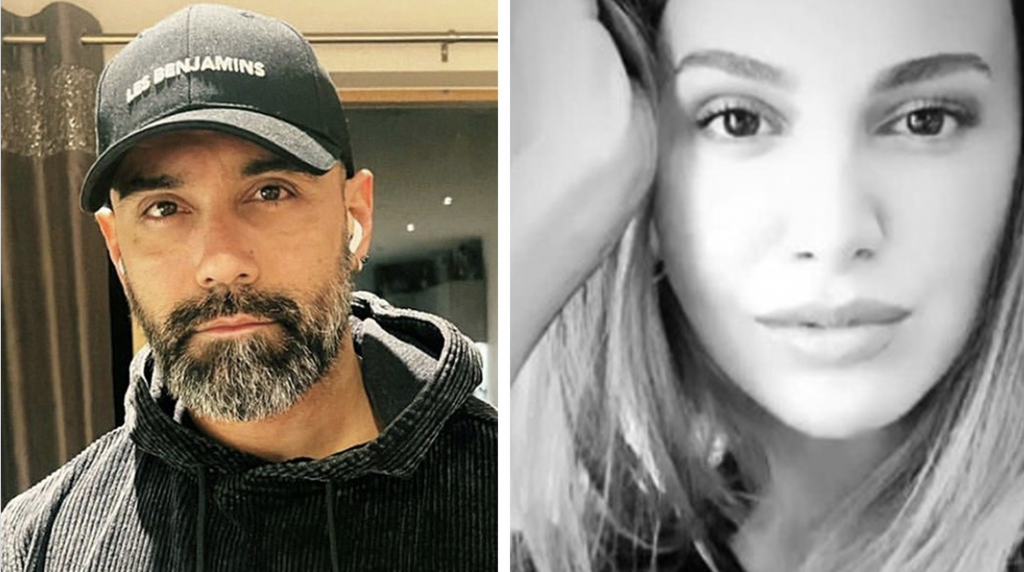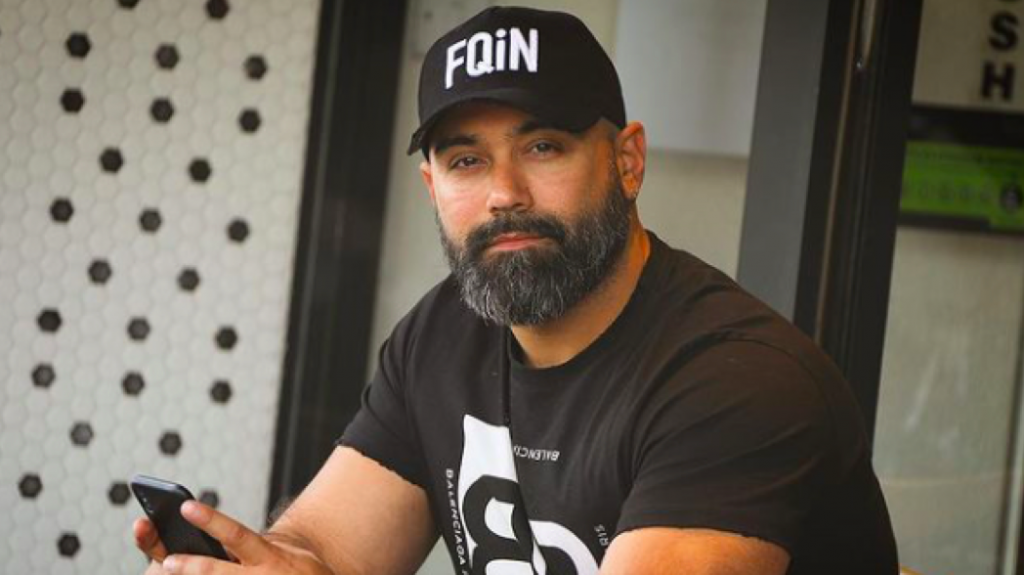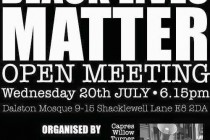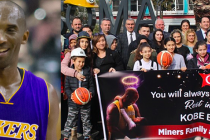One of the accused killers of a Turkish DJ told the Old Bailey he was only hired as “muscle to scare the guy.”
The body of DJ Koray Alpergin, 43, was discovered near the Oakwood Hill Industrial Estate in Loughton, Essex, on 15 October 2023 after he was tortured to death.
Mr Alpergin, who was originally from North Cyprus, was a popular radio presenter and co-founder of UK Turkish radio station Bizim FM, who led a flamboyant life around celebrities such as rapper P Diddy and Turkish restaurateur Nusret Gökçe aka ‘Salt Bae’.
He was kidnapped from outside his flat in Enfield with girlfriend Gözde Dalbudak, 34, and they were ‘frog-marched’ into a white van after arriving home from a meal at an Italian restaurant in Mayfair, the court has heard.
Mr Alpergin was beaten with a baseball bat, boiling water was poured on him and other horrific torture methods used while Ms Dalbudak was locked in a toilet for two days, jurors were told.
His naked body was then dumped in woodland and the vehicles used set alight before the corpse was found by a dog walker.
The accused
On trial are Steffan Gordon, 34, Tejean Kennedy, 33, Samuel Owusu-Opuku, 35, Junior Kettle, 32, and Ali Kavak, 26, who all deny murder and false imprisonment.
Kennedy, Owusu-Opuku, Kettle and Kavak also deny kidnap of Mr Alpergin and Ms Dalbudak on 13 October 2022, while Gordon admits it.
Kavak and Erdogan Ulcay, 56, deny perverting the course of justice by assisting with the disposal of Mr Alpergin’s body or the destruction by fire of a Fiat Diablo van and Renault Megane.
Giving evidence Gordon, who admits kidnap, told jurors he believed it was only ever going to be a drugs robbery and he was merely helping “some Turkish guys”.
Gordon said: “When I asked him (Kennedy) what he was up to, his friends had a little move, an illegal job. He said he knew a Turkish guy who had some food [slang for drugs] and needed a little more muscle.
“Basically he said, you just have to go for muscle and you will get a good cut of it. So I thought, ‘ok, that sounds simple enough’.
“At that time, I thought it would just be these Turkish guys [who] would rob another and would need some muscle to scare the guy.
“He just said it would be later on, I assumed a few hours later or something like that. I agreed to be a part of it.”
Murder accused Steffan Gordon: “It sounded like they knew him, they were saying ‘it is going to be easy, he is going to be with his girl and he will give it up easily, he is a pussy’
Later on, Gordon said he was sitting with Kettle in a house with the Turkish men when he overheard them discussing the evening’s plans.
“It sounded like they knew him, they were saying ‘it is going to be easy, he is going to be with his girl and he will give it up easily, he is a pussy’.
“From this I assumed it was someone in their friendship group, I thought it was a set-up, and I was just there to be intimidating,” Gordon added.
Gordon later overheard the Turks discussing a white van, which he thought was going to be for other members to arrive in to conduct the robbery.
The kidnap
“I know it is not a robbery now, but the Turkish guy said ‘put him in the van and make sure he doesn’t contact anybody’.
“Now I understand that it is not simply taking something off him but we need to hold him. By that time, I thought they wanted to talk to him, that is why they were saying he is a pussy.
“I assumed this was going to be a daytime robbery but now it is night-time and there is a van involved.
“I thought I would be playing a really small role, nobody told me what my role was. They said to grab him and put him in a van. At that time, I wasn’t sure who was going to be involved.
“I expected a bit of scrapping, maybe a punch or two, but forcefully getting someone into a van. From what I had seen, he was a big guy, the way they spoke about him, he was small.
“I wouldn’t have called it kidnap at the time, at the time it was putting him in the van. The Turkish guys were going to question him, they were going to get whatever they wanted from him and then we would go our separate ways.”
On the night in question, Mr Alpergin and Ms Dalbudak were forcefully put into the back of the van and it was driven away.
Gordon told the court: “They picked him up from his arms, I picked him up by one of his legs and we put him in via the sliding door of the van.
“I had to pick up his leg, by the time I got there, the guy was on top of him and grabbed his arms. He was not happy about being grabbed.
Gözde Dalbudak “weeping out of fear”
“By the time, we had brought Mr Alpergin back to the van, she (Ms Dalbudak) was standing next to the sliding doors.
“There was a man next to her, I remember when I was putting Mr Alpergin in the van, she was standing calmly next to the van, with someone behind her. She just got in the van.
“He [Mr Alpergin] was kicking the door open, so I was holding his legs and closing the door again so it didn’t fly open.
“She was scared, she was weeping, not actually crying, but weeping out of fear. They calmed down after a while.
“I am still holding his legs and the door [of the van] has a little latch and I am trying to pull the latch back.
“I never knew what was going on, apart from putting him in the van, I never knew what was going to take place next.”

Ms Dalbudak had told police in a statement that she was placed in the back of the van and was crying loudly, prompting Mr Alpergin to tell her to “be quiet my love.”
In her statement she had said she was knocked out by being punched twice in the face. Her next memory was being inside a dark place and hearing Mr Alpergin and someone hitting or beating him.
Her trench coat, an iPhone, a gold bracelet and a necklace with a heart shaped diamond pendant bought for her by a previous partner were taken, she said.
Ms Dalbudak has said she will not fly back from Turkiye to testify in the murder trial.
Blood stains
Blood belonging to Mr Alpergin was found on clothing and cleaning products at the site where he was tortured to death, the Old Bailey was told on Tuesday, 10 October.
Giving evidence forensic scientist Joseph Keeley confirmed DNA found on items recovered from the Stadium Lounge (previously Ezgi Türkü Bar) – near the Tottenham Hotspur Stadium – matched Mr Alpergin and various alleged kidnappers.
These included a shirt, surgical gloves, a dustpan handle, a kettle, a plastic cup, a bottle of Flash All-Purpose cleaner, a Domestos bottle, a tracking device and a mop handle.
Mr Alpergin had been wearing the shirt on the evening he was abducted.
A cream Morgan trench coat recovered from the scene also contained bloodstains with DNA matching Ms Dalbudak.
Mr Keeley held up a checked shirt also recovered by police, stating: “It matches the shirt Mr Alpergin was wearing. There is possible blood staining. Two areas of blood staining were sampled, with a complete DNA profile from both sites originating from blood.
“This profile matches the profile of Mr Alpergin such as to suggest the blood could have come from him.”
Mr Keeley then held up the trench coat and explained that DNA from the bloodstains on the inside and outside of the right sleeve matched that of Ms Dalbudak,
He said of the dustpan: “The dustpan handle was examined. There was DNA from more than one person in common with “unknown 4” and another suspect.”
Of the kettle the forensic scientist said: “We found blood on one of the swabs. A complete DNA profile was obtained which matched Mr Alpergin.”
The mop handle contained DNA from Mr Alpergin and “unknown 4”.
Kavak’s DNA was found on the tracking device, the court heard.
Judge Sarah Whitehouse KC asked Mr Keeley: “Sometimes people can handle things and touch things and there will be no DNA left. There are lots of reasons. Why might it be that there is no DNA on things people have touched?”
Mr Keeley replied: “People leave different amount of DNA. It depends on what they are doing. For example, if they are sweaty they will transfer more DNA than if they had just washed their hands.”
Judge Whitehouse then asked him: “Is it sometimes the case that you might have DNA from so many people that it’s impossible to say anything about it at all?”
Mr Keeley replied: “Yes. If the result is too complex there is no sense in carrying out the comparisons of DNA profiles because there is so much information present.”
The trial continues.





